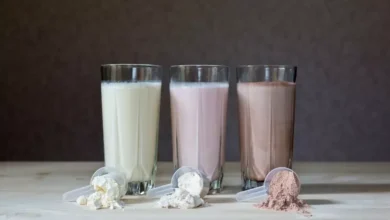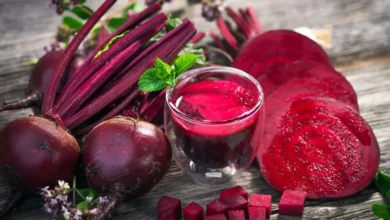Healthy Diets That Reduce the Risk of Dementia
Healthy Diets That Reduce the Risk of Dementia
Also read: Source Reddit / Quora Follow our page

As people around the world live longer, concerns about cognitive decline and dementia have become more prominent. Scientific research increasingly points to lifestyle choices—especially diet—as powerful tools in preventing cognitive diseases. But which eating habits can truly make a difference?
How Diet Impacts Cognitive Health
Dementia refers to a group of conditions that affect memory, thinking, and social abilities. Alzheimer’s disease is the most common form. While age and genetics are key risk factors, nutrition plays a crucial role in brain health. Diets rich in antioxidants, healthy fats, vitamins, and anti-inflammatory foods can protect brain cells and slow cognitive aging.
Mediterranean Diet: A Gold Standard for Brain Protection
The Mediterranean diet has consistently been associated with lower risks of dementia. This diet emphasizes:
- Fresh fruits and vegetables
- Whole grains
- Olive oil
- Fish and lean meats
- Nuts and seeds
Studies show that those who follow this dietary pattern tend to perform better on cognitive tests and experience slower mental decline.
DASH Diet: More Than Just Heart Health
Originally designed to combat hypertension, the DASH (Dietary Approaches to Stop Hypertension) diet is also beneficial for brain function. It focuses on:
- Low sodium intake
- Foods high in potassium, magnesium, and calcium
- Vegetables, fruits, and lean protein
Improved blood pressure and better circulation from the DASH diet can directly support brain function and reduce dementia risk.
The MIND Diet: A Targeted Strategy Against Alzheimer’s
The MIND diet combines elements of the Mediterranean and DASH diets but is tailored specifically to improve brain health. It highlights:
- Leafy greens at least six times a week
- Berries at least twice a week
- Fish once a week
- Nuts, beans, and whole grains regularly
Research shows that even moderate adherence to the MIND diet can reduce the risk of Alzheimer’s disease by up to 35%.
Nutrients That Matter: What to Eat for Brain Health
Certain foods are known for their protective effects on the brain. Make sure to include:
- Omega-3 rich fish like salmon and mackerel
- Blueberries and strawberries (rich in antioxidants)
- Leafy greens such as spinach and kale
- Turmeric and green tea (anti-inflammatory properties)
- Dark chocolate in moderation
These foods help fight oxidative stress and inflammation, two major contributors to cognitive decline.
What to Avoid: Foods That Harm Brain Function
Just as some foods boost brain performance, others can have the opposite effect. Try to limit:
- Sugary snacks and beverages
- Refined carbs and white bread
- Deep-fried and processed foods
- Red and processed meats in excess
- Trans fats found in packaged baked goods
These items are associated with inflammation and poor vascular health, which negatively impact brain function over time.
Diet Is Just One Piece of the Puzzle
While diet is essential, it’s more effective when combined with other healthy habits. To maximize brain health, also focus on:
- Regular exercise
- Adequate sleep
- Mental stimulation through learning
- Managing chronic stress
- Staying socially active
Together, these factors create a powerful foundation for long-term cognitive wellness.
Final Thoughts
The best time to start protecting your brain is now. A healthy diet doesn’t just reduce the risk of dementia—it improves your overall quality of life. Whether you choose the Mediterranean, DASH, or MIND diet, consistency is key. Combine your meals with positive lifestyle habits, and you’ll give your brain the nourishment it needs for years to come.
See more CONTENT like this.

Hello! My name is Alan Teixeira and I am passionate about helping people live healthier, more balanced lives. From mindful eating to daily habits that promote physical and mental well-being, I believe that small, consistent changes can lead to powerful transformations.
I created this blog to share practical tips, reliable information, and thoughtful insights that can inspire you to take better care of yourself—with balance, mindfulness, and positivity.
If you are looking to improve your health, nourish your body, and build a lighter, more fulfilling routine, you are in the right place. Welcome!





